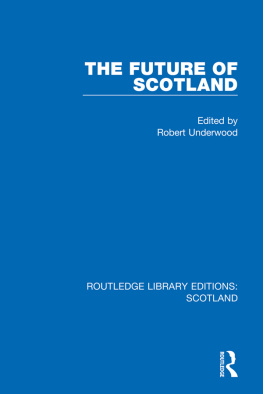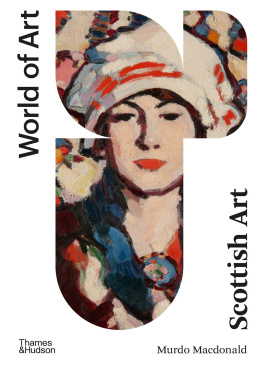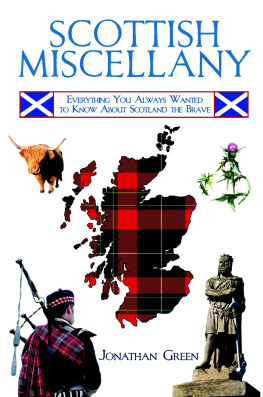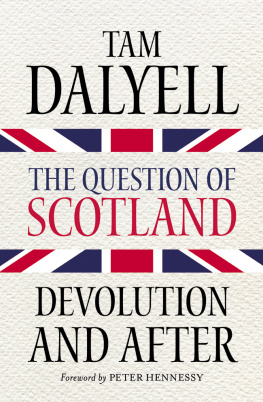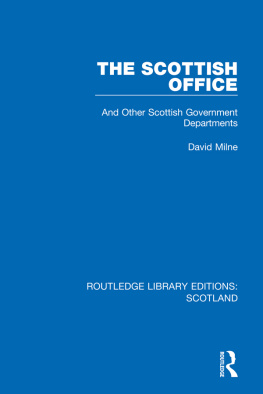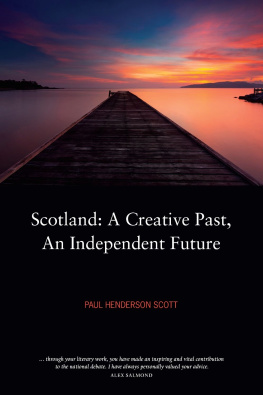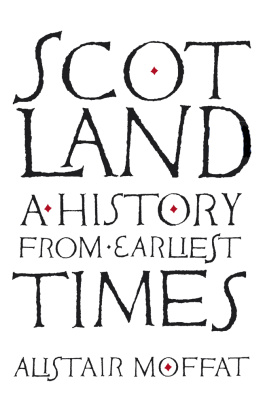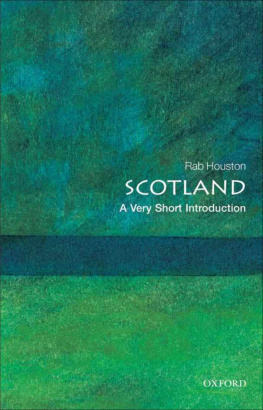ROUTLEDGE LIBRARY EDITIONS: SCOTLAND
Volume 30
THE FUTURE OF SCOTLAND
First published in 1977 by Croom Helm Ltd
This edition first published in 2022
by Routledge
2 Park Square, Milton Park, Abingdon, Oxon OX14 4RN
and by Routledge
605 Third Avenue, New York, NY 10158
Routledge is an imprint of the Taylor & Francis Group, an informa business
1977 The Nevis Institute
All rights reserved. No part of this book may be reprinted or reproduced or utilised in any form or by any electronic, mechanical, or other means, now known or hereafter invented, including photocopying and recording, or in any information storage or retrieval system, without permission in writing from the publishers.
Trademark notice: Product or corporate names may be trademarks or registered trademarks, and are used only for identification and explanation without intent to infringe.
British Library Cataloguing in Publication Data
A catalogue record for this book is available from the British Library
ISBN: 978-1-03-206184-9 (Set)
ISBN: 978-1-00-321338-3 (Set) (ebk)
ISBN: 978-1-03-207519-8 (Volume 30) (hbk)
ISBN: 978-1-03-207579-2 (Volume 30) (pbk)
ISBN: 978-1-00-320749-8 (Volume 30) (ebk)
DOI: 10.4324/9781003207498
Publishers Note
The publisher has gone to great lengths to ensure the quality of this reprint but points out that some imperfections in the original copies may be apparent.
Disclaimer
The publisher has made every effort to trace copyright holders and would welcome correspondence from those they have been unable to trace.
The Future of Scotland
EDITED BY ROBERT UNDERWOOD

1977 The Nevis Institute
Croom Helm Ltd, 210 St Johns Road, London SW11
British Library Cataloguing in Publication Data
The future of Scotland.
1. Scotland Social conditions
I. Underwood, Robert
309. 14110857HN398.S3
ISBN 0-85664476-5 hardback
ISBN 0-85664-695-4 paperback
Printed in Great Britain
by Redwood Burn Ltd, Trowbridge and Esher
CONTENTS
Robert Underwood
1. The Scottish Identity Christopher Smout
2. The Arts in Scotland George Bruce
3. Mineral Wealth Donald Duff
4. The Growth of the Energy Industries John Francis
5. The Scottish Diet Kenneth Blaxter
6. Health Care Michael Parry
7. The Educational System James Scotland
8. Trends in the Economy Andrew Hargrave
9. The Outlook for Industry John Evans
10. Prospects for Transport Olaf Thornton
11. The Built Environment Jan Fladmark
12. Scotlands Defence John Erickson
13. The Political Response James Kellas
14. An Afterword William Robertson
- 1. The Scottish Identity
- 2. The Arts in Scotland
- 3. Mineral Wealth
- 4. The Growth of the Energy Industries
- 5. The Scottish Diet
- 6. Health Care
- 7. The Educational System
- 8. Trends in the Economy
- 9. The Outlook for Industry
- 10. Prospects for Transport
- 11. The Built Environment
- 12. Scotlands Defence
- 13. The Political Response
- 14. An Afterword
Guide
Industrial society has developed by separating into well defined specialities both the tasks of everyday life and its knowledge. But now, dependent upon that specialisation, it faces complex and serious issues whose resolution demands an understanding of their interactions, for which academics as much as business people are ill prepared.
The Nevis Institute has been founded to stimulate and to develop a clearer view of the connections between different disciplines. It believes that only with such an improved understanding can credible anticipations for the future be formed. Whilst maintaining a world perspective of the issues which it studies, it intends to bring them to a Scottish focus. It does this not from narcissistic parochialism but simply in the hope of achieving a sensible scale for the study and resolution of problems. Scotland and the northern islands have an historic identity which permits their separate study, but are sufficiently important in their involvement with world affairs to give a wider relevance to the work produced by the Nevis Institute.
This, the first book of the Institute, is intended to provide a frame work for conjecture. Scotland shares the problems of all western so ies, but geography and industrial history have given them a special character. It is the task of this book to describe these special characteristics and to set the issues that shape them in a world context. The unbiased, detached view taken by the book is offered as an informed contribution to the wide ranging reappraisal of Scottish identity and world position currently being debated.
These essays are based upon the lectures given in the series Scotland and the Future which was sponsored by the University of Edinburghs School of the Man Made Future, which has since been closed. That series and associated projects, which were conducted during the first half of 1976, highlighted the need for the establishment of an independent body to be concerned with issues related to the future in Scotland. The Nevis Institute has been founded to serve that need.
Anticipations derive from the fusion of understanding gained from past experiences, with the appreciation of current circumstances. The different views of the future come from different interpretations. Those whose job is to make preparations for the future need images and concepts of the future. Frequently these models of what the future holds are different for each expert group; they are usually assumed and not stated.
The Institute works with trans-disciplinary groups who address particular issues or problems. These groups of experts, who usually do not work together, need to make their assumptions explicit in order to develop an agreed working basis. This process of linking together people with different assumptions will in itself be beneficial. But additionally those associated with the Institute expect to improve their insights of future possibilities enabling them to be better prepared for the way ahead.
Christopher Smout and George Bruce open with their varying interpretations of Scottish Identity. In the context of resources, minerals, energy and food are considered, while human potential is discussed with reference to health, education, enterprise and economics. With the basic scene set attention turns to some of the issues of strategic planning, transport, building and defence. Finally, James Kellas looks at Scotlands political system and the ways in which it is likely to respond to changes.
This book reflects not only the work of the contributors and those others who have directly assisted in its compilation, but also those formerly involved with the School of the Man Made Future and those people who have contributed to the founding of the Nevis Institute. Thanks are extended to all of these people. The contributors write as individuals and not as representatives of the organisations or bodies with which they are associated. Nor does this book put forward a common interpretation, rather its approach to some aspects of the situation reflects a plurality of thinking. And these differences are as important as the areas of agreement in catalysing thought and action for the long term future in Scotland.

